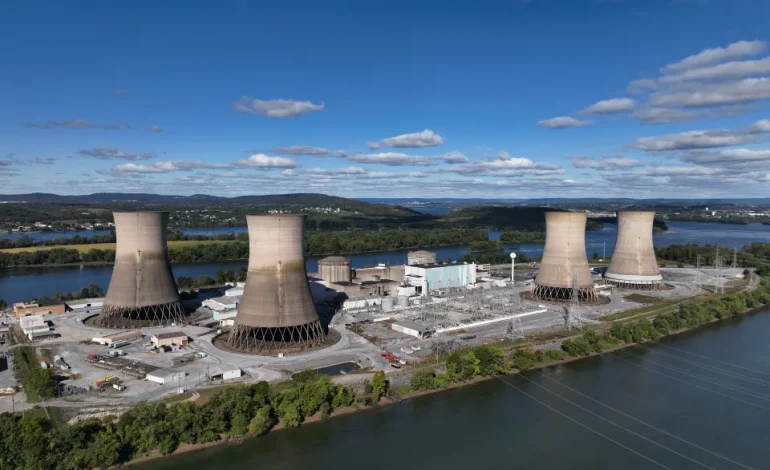The Federal Energy Regulatory Commission (FERC) has rejected a request to increase nuclear power supply for Amazon’s data center in Pennsylvania, highlighting regulatory complexities surrounding energy demands from major tech companies.
The ruling, made on Friday, prevents additional “behind the meter” nuclear power delivery from the Susquehanna nuclear plant to Amazon’s facility, stalling a notable trend where large data centers seek direct power access from nearby sources.
In a 2-1 vote, FERC’s Republican commissioners, Mark Christie and Lindsay See, opposed the measure, while Chair Willie Phillips, a Democrat, dissented. Democratic commissioners David Rosner and Judy Chang abstained from the vote. According to Christie, the proposed arrangement raised multifaceted issues with potential impacts on grid stability and consumer costs, warranting a cautious approach. In contrast, Phillips argued that facilitating nuclear energy access for Amazon would support both energy reliability and national security. The data center, located adjacent to the Susquehanna facility, was purchased by Amazon earlier this year for $650 million.
The proposal from PJM Interconnection, the regional grid operator, aimed to amend an interconnection agreement to enable Susquehanna’s nuclear plant to provide extra power directly to Amazon’s center. However, PJM did not sufficiently justify this arrangement, leading FERC to rule against it. PJM, which oversees electricity for over 65 million people across 13 states, will now review the decision and consider its next steps.
The push to secure direct nuclear power connections reflects an increasing reliance on energy-intensive AI technologies by tech giants like Amazon, Google, and Microsoft. Recently, Google announced a plan to use nuclear energy from a new fleet of small modular reactors, while Amazon has made similar investments in advanced nuclear technologies. For Amazon, as for other companies, nuclear energy represents a low-emission solution to meet high energy demands while maintaining carbon-neutral goals.
FERC’s decision also affected nuclear power companies’ stock prices, with Constellation Energy, Talen Energy, and others seeing a decline. Constellation’s CEO, Joe Dominguez, described the ruling as a temporary setback and expressed optimism for future guidance on co-location strategies. Despite this setback, Constellation’s separate agreement with Microsoft to restart the Three Mile Island nuclear plant in Pennsylvania remains unaffected.
With input from the Hill, Bloomberg, and Market Watch.









